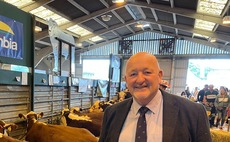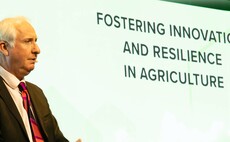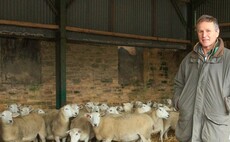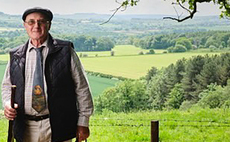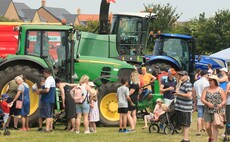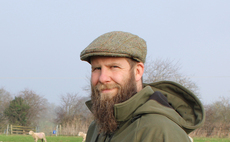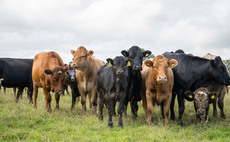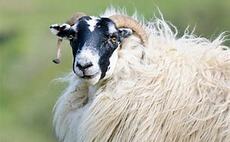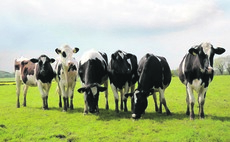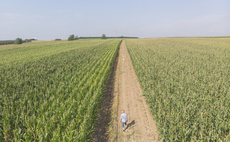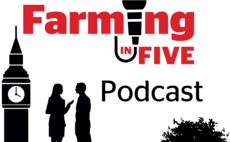Dutch farming on the verge of a disaster as Government pushes to close 3,000 farms. Chris McCullough reports.
Farmers in the Netherlands are furious over Government plans to buy and close down up to 3,000 productive farms in order to comply with controversial European Union plans to reduce emissions.
The Dutch Government says it must reduce its nitrous oxide and ammonia emissions levels by 50% by 2030 to comply with EU regulations.
In order to do this, it has proposed forced buy-outs of up to 3,000 farms which are deemed peak polluters. The buy-out will start next year, if farmers do not sell voluntarily or take immediate action to reduce their emissions.
Thousands of Dutch farmers have been protesting around the country in the last few months, with more protests planned.
These bold moves have emerged following several court cases in the Netherlands which found the Dutch Government was not doing enough to address the nitrogen crisis.
At first the Government introduced plans to reduce livestock numbers by 25%, but has now gone further with the buy-out plans.
In the EU, the Netherlands is one of the most intensely farmed Member States, with 1.1% of EU farmland producing 6% of food in the EU.
However, it produces over 10 tonnes of greenhouse gas (GHG) emissions per hectare, over four times the EU average, and also has high pesticides and energy use.
Farmers are also angry that the big industrial GHG emitters, such as airports, oil and construction industries, are being offered a much less impactful set of regulations.
Dutch farmer Klaas Meekma milks more than 1,100 goats at Deinum and says the Government has made a mess of the situation.
Mr Meekma says: It is a real shame how farmers are being treated in the Netherlands. They are being pushed out to make room for industry, aviation, transportation, solar fields and housing for the growing numbers of immigrants.
And all because of a so-called nitrogen problem the Government created itself. It was created by farming-hostile civil servants in The Hague, who focused on nitrogen deposits and went a long way to select a large number of sometimes very small areas with nutrient poor species for protection in the EU Natura 2000 list.
Mr Meekma says the nitrogen regulations are being used by the anti-livestock movement to get rid of as many livestock farms as they can.
He adds: There is absolutely no respect for what Dutch livestock farms have achieved in terms of food quality, use of leftovers of the food industry, animal care, efficiency, exports, knowhow, economics and more.
These draconian rules will no doubt result in less exports, a downward spiral for the whole livestock business here, more dependency on food imports and more costs to maintain landscapes. It will also negatively affect rural communities where agriculture still is an important employer.
Politically speaking, the support for farmers is dwindling and even the Minister of Agriculture resigned, saying he was not the one to bring these rules to farmers.
However, Mr Meekma says the upside of this is the emergence of a new political party, Boer Burger Beweging (BBB), a farmer civilian movement, which has gained a lot of support, not only from the 50,000 farmers in the Netherlands, but also from a lot of people concerned about the way farmers are being treated.
Mr Meekma says: Polls predict the BBB could get close to 10% of the votes in the March provincial elections, which will also result in a similar proportion of Members of the Senate.
At the same time, the current Government coalition is losing support heavily and Dutch farmers are very eager to see this change realised.
Fifth generation dairy farmer Trea Doornenbal milks more than 200 cows near Appelscha, one of the main dairy regions in the country.
Along with her husband Harry, she is concerned about the future of the family farm that her 22-year-old twins Claudia and Jeroen want to take over.
Mrs Doornenbal says: It is not known who these 3,000 farmers are, but it is probably the farmers who are within 1,000 metres of an N2000 area. We ourselves are about 1,200m from such an area.
However, there are many depressed farmers. The suicide rate is also high and farming is now in the top 10 occupations with the most suicides.
We try to stay positive ourselves as we our children want to continue as farmers.
Some farmers in the Zwolle are of the Netherlands received a permit to expand cow numbers between 2015 and 2018, a so-called PAS notification.
However, due to a Government error, these permits should not have been issued and are now being withdrawn. These farmers must dispose of their cows.
Mrs Doornenbal says: If they do not get rid of those cows they will be fined. At the time of the permits, many of these farmers took out a loan from the bank to build new barns. Now they have that barn, which will become empty and no money comes in.
It is sad to say, but the agriculture industry in the Netherlands is in a real mess.







